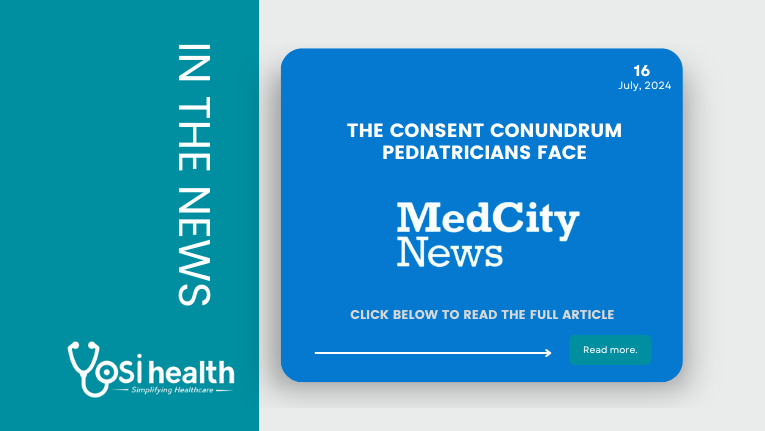
As the consent landscape continues to evolve, pediatricians are tasked with striking a careful balance – respecting the autonomy of their teenage patients while still operating within the guardrails of state regulations and parental authority.
For pediatricians, navigating the consent process with teenage patients is becoming increasingly complex and challenging. Anyone with an adolescent child knows that as they mature into their teen years, they demand greater privacy and autonomy when making healthcare decisions. However, the rules and regulations surrounding consent for minors vary widely by state, creating a complicated landscape for medical professionals, patients, and their parents to navigate.
Properly handling consent and preserving confidentiality for teenage patients is exacerbated not only by family members but also by community members, such as school administrators, team coaches, and even members of religious institutions, who may need to approve activity participation based on their level of involvement in the teenager’s life.
Additionally, during their formative adolescent years, young people may be facing sensitive issues related to reproductive health, mental health, substance abuse, or other personal matters. Ensuring these teens feel comfortable confiding in their doctors and seeking necessary care is crucial for their well-being.
Our pediatric clients tell us that a recurring concern is that teenagers are reluctant to disclose personal information or seek necessary care if they feel their privacy is not respected. Consequently, they’re not talking about their mental health issues, sexual health, substance abuse problems, or questions they have about going through puberty.
It’s up to the pediatrician to establish a safe environment where teenagers feel assured that their privacy will be safeguarded, which can be daunting if parents, as guardians, insist on being gatekeepers to their teen’s medical decisions.
Each state has different laws dictating when and under what circumstances a minor can consent to certain types of treatment without parental approval. For example, in California, a minor of any age can consent to reproductive health services like contraception or prenatal care. However, in Texas, parental consent is required for most services until age 18.
This patchwork of inconsistent regulations presents a significant hurdle for multi-state healthcare providers and pediatric practices with patients residing in different jurisdictions. Maintaining the nuances and ensuring consent protocols are properly followed is an administrative challenge.
Fortunately, innovative technologies are emerging to help streamline and standardize the consent process while prioritizing teen patient privacy. Certain practice management platforms now enable consent forms to be securely sent directly to teenage patients, bypassing the need for parental intermediation if not required by state regulations. This not only ensures patient confidentiality but also the autonomy and privacy preferences of teenage patients.
There are several advanced privacy protection solutions tailored to sensitive adolescent care issues. HIPAA-compliant software allows teens to directly message doctors, make appointments, and securely share information without parental involvement regarding sexual health, substance abuse, mental health, and other topics deserving discretion.
As the consent landscape continues to shift and evolve, pediatricians are tasked with striking a careful balance – respecting the increasing autonomy of their teenage patients while still operating within the guardrails of state regulations and parental authority. With the help of new privacy-focused technologies, the aim is to create a judgment-free environment where vulnerable youth can get the care they need.
Protecting adolescent confidentiality is not just a matter of following the legal codes but is a vital step in cultivating lasting trust between pediatricians and their young patients during these formative years. Getting the consent protocols right and opening trustworthy confidential communication channels is a priority for ensuring better health outcomes for the next generation.

Hari Prasad
Hari Prasad is pioneering the modernization of the entire healthcare patient experience. He is co-founder and CEO of Yosi Health, a full-service technology ecosystem that connects patients with their providers through the entire care journey before, during, and after the visit creating delightful patient experiences.
To read the full article, Click Here



